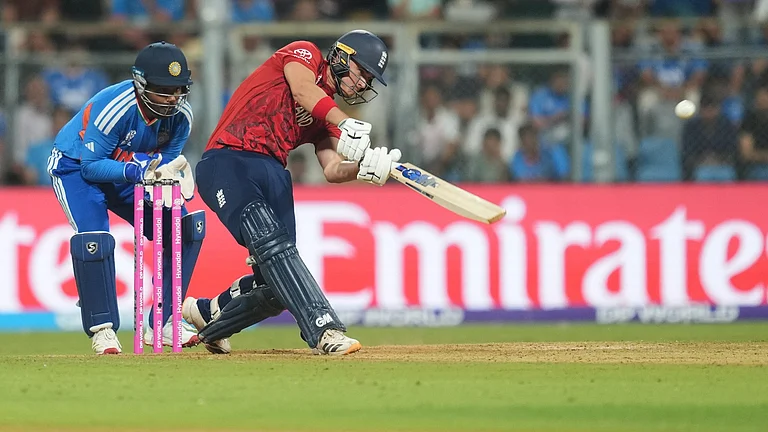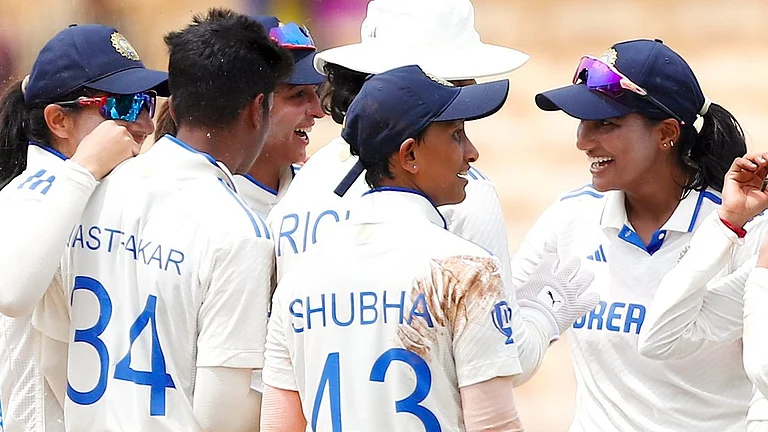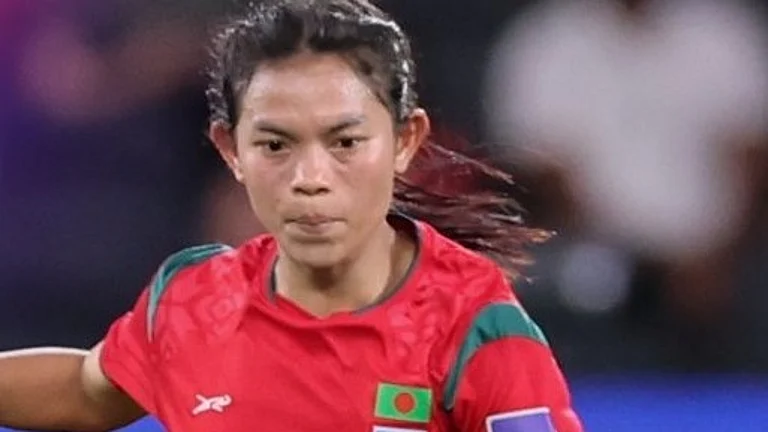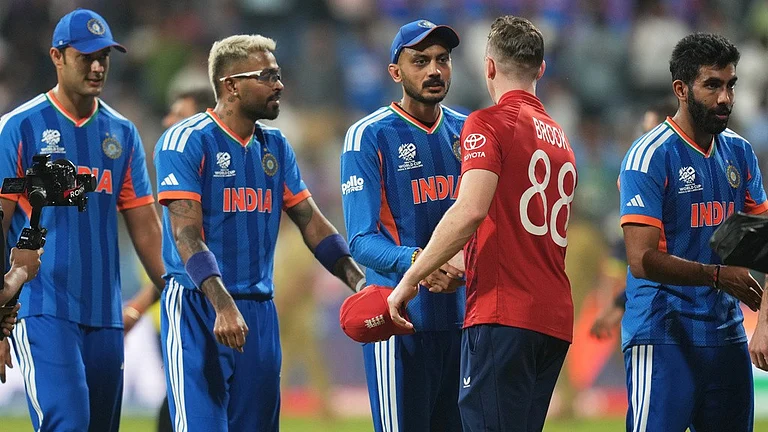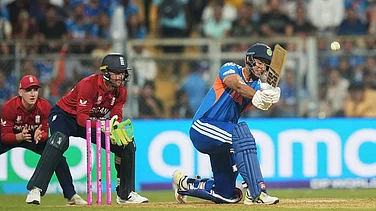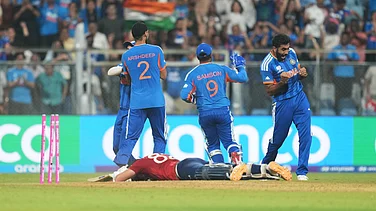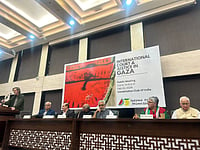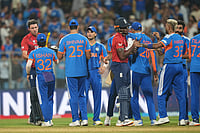Inside a dilapidated building named Shankar Akhara, young pehelwans (wrestlers)—boys and girls—are sweating it out on blue wrestling mats. The ceiling fans fail to provide them with any relief from the June humidity, but that is not a deterrent for the young wrestlers. Kushti (wrestling) is not a sport in Mokhra village in Rohtak district of Haryana; it’s a passion and an emotion.
Most doors in the village open to a bunch of medals hanging from cracked and rustic mud walls. Beaming with pride are the trophies that are lined up on wooden shelves. The village has been producing several wrestlers of national and international repute for years. The most prominent poster girl for the young wrestlers is Olympian Sakshi Malik. Mokhra is her native village. As a child, when she was about 3-4 years old, Malik would come to the Shankar Akhara along with other children. That probably was her first association with wrestling.
Years later, after she won the Bronze medal at the 2016 Rio Olympics, when Malik arrived in Mokhra, the village was elated. But these days, there is disappointment. The wrestlers and coaches are upset with the way Malik and other wrestlers, who have been protesting against the Wrestling Federation of India (WFI) president Brij Bhushan Sharan Singh for months, are being treated. But they go about their practice hoping the protesting wrestlers will get justice.
Even at Shankar Akhara, the business is as usual. Young wrestlers walk in every morning and evening. Their guruji (coach), 89-year-old Madiya “Pehelwan”, who opened the akhara way back in 1963, is strict and makes them toil. After all, he wants them to be the best. Under his patronage, this akhara has produced some of India’s best wrestlers. Nearly eleven jawans, who received training here, fought for the country in the Kargil War. Since 1963, the historic institution has become a symbol of Mokhra’s tryst with wrestling where almost every household has a budding wrestler or a family member who has been associated with wrestling.
The akhara has been running on shramdaan (voluntary donation). Madiya was the first one to donate and the akhara came up on the grounds of an old school nearby. Eventually, in 2000, a two-storey building came up on half-an-acre of purchased land. Since then, Shankar Akhara has been providing training to children without charging them anything. “We help kids from less-privileged backgrounds with their sports essentials and even travelling if they are selected for competitions,” Madiya says. He has been running the akhara without any government funding.
Nearly 60 to 70 children come here to learn wrestling every year. On the blue mats and mud pits, gender discrimination gets knocked out. Girls, boys, young men, and women practice with each other every day to hone their wrestling skills. As one watches them wrestle, the question of gender identity loses track. The sacred mat does not discriminate, they are all pehelwans, the coaches at the akhara say.
Among the wrestlers who win medals, there are many girls. But there are challenges. “It costs us a lot to train our two daughters Savita (18) and Poonam (25). We have to often sell our cattle to fend for their training,” says Anita Malik, the mother of the two girls. A lot of families eventually give up on their daughters’ training because of the financial burden. “Irrespective of the challenges, we are proud of our daughters. They have carved their way to success and we have hopes of sustenance,” she adds.
Poonam, a national-level runner, and Savita, a wrestler, have won several medals. Retro posters of Juhi Chawla and Renuka Shahane adorn the walls of their house. A shelf is packed with medals and trophies. While we were speaking to the mother, Savita, who was away for a championship in Bhopal, called. She had won two gold medals.
However, for most girls in the village, to keep going is a constant battle with the underlying patriarchy of rural India. There lies an obligation to ‘prove oneself’ to postpone the persuasion and pressure of marriage. And this, inadvertently, leads women to stay put in their training, dedicating all their time, energy and efforts to it, without any complaints. Girls learn faster than boys, say coaches. It’s to do with their social conditioning. “Girls know that they have a limited number of years to prove their worth, so they give it all,” explains Raja Malik, one of the coaches at the akhara.
Over the years, the akhara has undergone drastic changes in terms of gender discrimination. “In the earlier days, when women would step inside the akhara, we would light incense sticks,” says Madiya. But now, he is not bothered about gender. Anyone who is willing to toil, live a disciplined life and is keen to keep the tradition alive, is welcome. Girls as young as 10 train at the akhara.
It’s striking though that there are no female coaches. The social union of girls and boys is considered to be “city-like”. “You will not see the girls laughing or giggling. Their social upbringing trains them to be reserved. But they have been doing better than the boys,” says Malik, the coach.
From the common bathroom for girls, one can see patches of the sky. There are holes and burrows. Malik claims sometimes there are intruders like snakes and other reptiles. Yet, the girls continue to use the bathroom. The akhara struggles to get funds for renovation. The one water cooler was installed only 20 days ago—a gift from a fellow villager.
Talking about struggle, women in sports always have had to endure more as compared to the boys. The ongoing wrestlers’ protests have shocked young pehelwans in Mokhra, especially the girls. “Champions who won medals for the county were dragged and pulled. So was our national flag. It gave us goosebumps,” says Savita. She has been in contact with Sangeeta Phogat, one of the protesting wrestlers, and knows Vinesh (Phogat) and Sakshi (Malik). “They are all very supportive and kind. It makes no sense for sportspersons of this high stature to falsely accuse someone. If they had to lie, they could have targeted anyone. In this case, everyone is talking about this one person,” she says.
(Edited by Swati Subhedar)
(This appeared in the print as 'A Story From Sakshi's Village')
Shreya Basak and Swati Shikha in Mokhra



